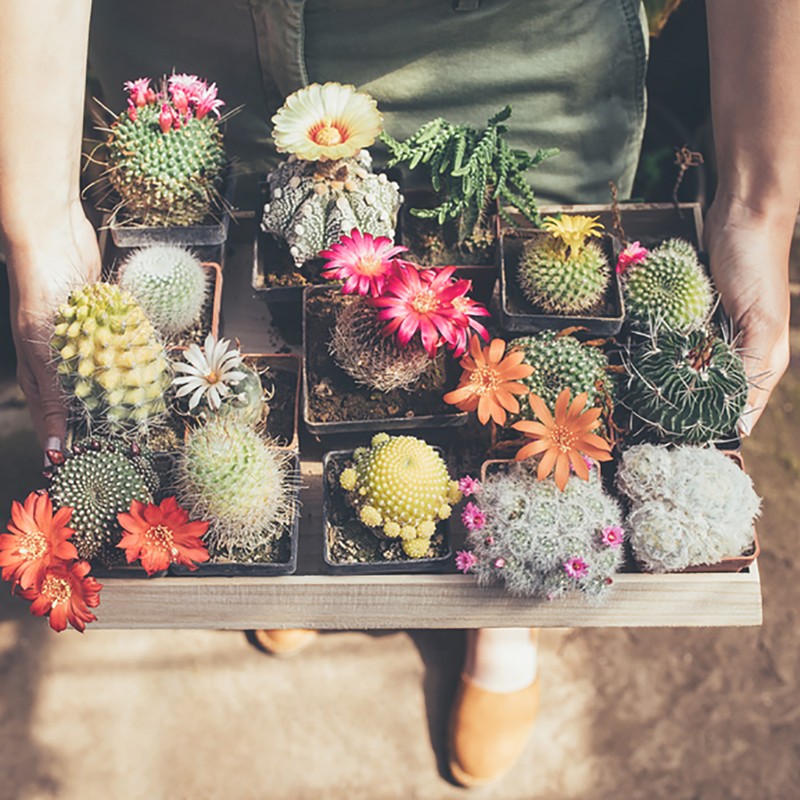There’s Now A Black Market For Succulents
The ultimate low-maintenance plant, recent years have seen succulents soar in popularity – they’re the subject of Instagram hashtags, couples give them as wedding favours, you can buy one in Urban Outfitters. But in China and Korea, where succulents are grown, plant nurseries are struggling to keep up with demand. So much so, that some suppliers are turning to California-based smugglers to harvest wild dudleya succulents and ship them to Asian markets.
This year alone, the California Department of Fish and Wildlife has busted five succulent smugglers. The raids recovered more than 3,500 stolen plants, some pulled up from the side of the road, others stolen from the grounds of Californian nurseries.
“Right now, these plants are a boom in Korea, China and Japan,” department warden Pat Freeling, who ran the sting operation, said. “It’s huge among domestic housewives. It’s a status thing. It’s become an exotic lotus flower succulent. Someone likened it to the next Pokémon.”
Freeling told the Guardian the department first began investigating the spate of succulent thefts after receiving an anonymous tip. Earlier this year, they were contacted by a woman who said she’d been stuck in a queue at a Mendocino post office, while a man in front of her mailed box after box – all “dripping with dirt” – to Asia. When she asked him what was in the boxes, he raised a finger to his lips and said, “Shhhh, something very valuable.”
Freeling initially suspected he was onto a potential poaching ring, so was surprised to find the dudleyas inside. The smuggler, 41-year-old Xiao Yang, eventually admitted to sending the plants abroad and pleaded guilty to unlawfully taking plant material. He was handed a $5,000 fine, 240 hours of community service and three years’ probation.
Experts believe the smuggling crisis is fuelled by a new demand for succulents from young, middle-class people in Asia. According to Alison Hulme, Editor of the book The Changing Landscape of China’s Consumerism, succulents have become a symbol of good taste, and collecting them may fulfil the quest for ‘suzhi’, or ‘quality of personhood’.
“For the generation 30 and under, it’s important for them to show that they are the generation that got the privilege of buying things,” Hulme said. She adds that the surge in demand in Shanghai is also down to the plant’s small size – convenient for those living in small apartments (something ‘generation rent’, the biggest succulent fans in the Western world, are all too familiar with).
While suppliers may be struggling, many Asian farmers are reaping the rewards. Succulent growers who once struggled to make ends meet, have seen their profits rise stratospherically – in some areas of China, the plants can fetch up to $50 (around £37) each. Now, Chinese office workers, like 33-year-old Wu Peifeng, are using the plant’s newfound popularity as an entrepreneurial opportunity, growing their own succulents and selling them online. “These small plants really gave me my first steps towards my dream of starting something,” Peifeng told the Global Times, adding that his new business venture is already “quite promising”.
DISCLAIMER: We endeavour to always credit the correct original source of every image we use. If you think a credit may be incorrect, please contact us at info@sheerluxe.com.


